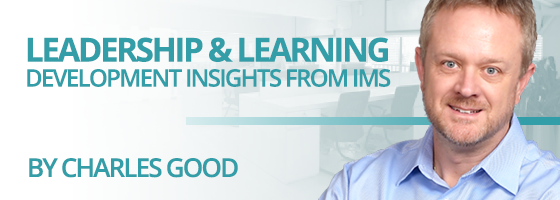In today’s rapidly evolving professional landscape, the ability to transform learning into results is more critical than ever. This crucial skill bridges the theoretical knowledge acquired in educational settings with the real-life demands we face in our work and personal endeavors daily.
However, many individuals encounter significant hurdles when making this transition, from time constraints and lack of support to the fear of failure. This article aims to address these challenges by unveiling effective strategies and practical solutions to assist individuals in applying their newfound knowledge more effectively. The proven methodologies discussed in this article are inspired by the works of IMS educators Britt Andreatta in “Wired To Grow” and Dr. Paul Zak in “Immersion,” my goal is to empower readers with the tools and confidence needed to translate their learning into tangible results, thus maximizing their return on investment in learning.
BEFORE THE LEARNING EXPERIENCE – SETTING THE STAGE FOR SUCCESS
- Set Clear Learning Goals Beforehand: It is crucial to establish specific, measurable targets for the development opportunity.
- Align Learning Objectives with Real-life Applications: Connect the learning outcomes with practical scenarios or tasks relevant to your professional role.
DURING THE LEARNING EXPERIENCE – MAXIMIZE UNDERSTANDING AND ENGAGEMENT
- Actively Participate During the Program: Engaging with the material actively is crucial. Ask thoughtful questions that can help clarify any unclear concepts. Participate actively in discussions and hands-on activities to deepen your understanding of the subject matter.
- Connect Concepts with Past Experiences: Always try to relate the concepts learned during the program to your past experiences.
AFTER THE LEARNING EXPERIENCE – ENSURE KNOWLEDGE TRANSFER
- Implement learning Immediately: Apply new skills to relevant tasks or projects as soon as possible after the program. Start with bite-sized, achievable tasks to bolster confidence.
- Share New Knowledge with Colleagues or Through Presentations: Teaching reinforces your understanding and uncovers any gaps in knowledge.
OVERCOMING COMMON OBSTACLES TO TRANSFORM LEARNING INTO RESULTS
- Lack of Time: Many individuals feel too busy with their daily tasks to apply new skills or knowledge.
- Solution: Prioritize tasks and manage your time more effectively. Consider integrating new skills into existing routines or dedicating specific times for practice. Time management techniques, such as batching similar tasks or using the Pomodoro Technique, are effective at creating space for application.
- Solution: Prioritize tasks and manage your time more effectively. Consider integrating new skills into existing routines or dedicating specific times for practice. Time management techniques, such as batching similar tasks or using the Pomodoro Technique, are effective at creating space for application.
- Inadequate Support from Management: With encouragement and support from leadership, employees may find it easier to apply new learning.
- Solution: Communicate the new skills’ benefits to the organization and how they align with business goals. Seek mentorship or sponsorship from a supportive manager or senior colleague.
- Solution: Communicate the new skills’ benefits to the organization and how they align with business goals. Seek mentorship or sponsorship from a supportive manager or senior colleague.
- Fear of Failure: The apprehension about making mistakes when trying something new can prevent individuals from applying their training.
- Solution: Foster a growth mindset, emphasizing learning from mistakes as part of the process.
Developing skills and learning new concepts is just one step of the learning journey. The challenge lies in applying this knowledge in your everyday life and professional environment. By embracing the strategies and solutions discussed in this article, you are well-equipped to bridge the gap between learning and applying. Remember, every stage of the learning process, from setting clear goals before the training to implementing the learning immediately after, plays a crucial role in your journey toward successful knowledge transfer.
To learn more techniques and strategies to transform learning into results, listen to my conversations with Dr. Britt Andreatta (Episode 102) and Dr. Paul Zak (Episode 106). You may also want to read my blog on overcoming the forgetting curve.
ABOUT CHARLES GOOD
Charles Good is the president of The Institute for Management Studies, which provides transformational learning experiences that drive behavioral change and develop exceptional leaders. Charles is an innovative and resourceful leader who specializes in bringing people together to develop creative organizational and talent strategies that enable business results. His areas of expertise include assessing organizational skill gaps and leading the design, creation and delivery of high impact, innovative learning solutions that achieve business goals.
